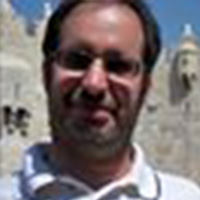
Brit Tzedek – Repairing the World – 10 Years Later
“Never doubt that a small group of thoughtful, committed, citizens can change the world. Indeed, it is the only thing that ever has.” – Margaret Mead
While the quote has almost become a cliché, it is also the best description that I can give of Brit Tzedek v’Shalom. I can remember being at a 50th birthday celebration for Israel celebration held on UT-Austin’s West Mall in 1998. There were Jewish students celebrating the joy and accomplishments of a half-century of Jewish statehood. A few feet away Palestinian students were accusing Israel of mass murder, racism and genocide. And I remember walking back and forth between friends on both sides trying to get them to talk to each other – mostly unsuccessfully. The polarization was simply that if you supported Israel you had to support the policies of its elected government – including the dehumanizing policies of Occupation. And if you opposed the Occupation, you had to oppose the very existence of a Jewish state and everything that it stood for and everything that it did. There was no middle ground. There was no space for Zionists like me who love the State of Israel and opposed many of its destructive and self-destructive actions.
Because of the work that a very small group of us began in 2002 that middle ground exists today – especially in the Jewish community. I firmly believe that there wouldn’t be a J Street today if Brit Tzedek hadn’t blazed a trail through the wilderness and opened the political space for that we did. We have taken a few small steps to changing our world – indeed towards Tikkun Olam, Repairing the World. When a small group of us started talking about building a movement that was pro-Israel and pro-two state solution in early 2002, the task was daunting and almost unimaginable. We started with almost no money. At one point, a few of us flew in from around the country to assemble in Aliza Becker’s living room in Chicago to plan a conference. In April, 200 people gathered at a Comfort Inn in Arlington, VA to form Brit Tzedek v’ Shalom. We gathered as the flames of the Second Intifada burned and only weeks after the gruesome Passover Massacre in Netanya. I delivered a Dvar Torah to that group that first Shabbat about hopes and fears. I told our assembled activists that ours was the message of hope against all those who would tell us that we must act reflexively out of fear. We sang together: Gesher tsar m’od – Life is a very narrow bridge, and the most important thing is not to be afraid. Over the next 7 years we stood against the fear-mongers and all those who warned us that peace was an existential threat to Israel’s existence, because we understood that it was the continuation of the Occupation that was the threat to Israel’s existence as state and to our essential values as Jews and human beings.
At the time I said the following: “There is a midrash. It is from the time after the fall of the 2nd Temple….Rabbi Akiva – one of the greatest of Jewish sages – stood at the ruins of the Temple Mount and he watched as the foxes ran through the ruins. And he began to laugh. And one of his students asked him, “How can you watch the foxes running through the ruins of the Temple Mount and laugh.” And Rabbi Akiva answered him that, “Now that I see that the Temple Mount has been destroyed I know that it will be rebuilt.”…..The theology of this story is less important to me than the spirit of it. And the spirit is a form of nearly blind optimism. It is a belief, a faith, that we can make a difference.”
Over ten years later, we have not achieved a two-state solution, but we have made a difference. Brit Tzedek began a process of changing the world. We have begun – albeit ever-so-slowly – to change the debate over the Israeli-Palestinian conflict in Washington and in the American Jewish Community. The roadblocks to peace today seem to be more in Jerusalem than in Washington, DC. We have a President and an administration that shares our vision of a two-state solution.
And as I look out over Rabbi Akiva’s metaphorical Temple Mount today, the foxes seem to have vanished. I can’t say that a Temple of Peace and Justice has been built or that a two-state solution is around the corner. But I think maybe a foundation has been laid for such a day. Just maybe we’ve taken a few steps forward in changing the world to bring about just a little bit more justice and peace – Tzedek v’ Shalom.
David J. Albert, PhD
Founding Board Member, Brit Tzedek v’ Shalom

